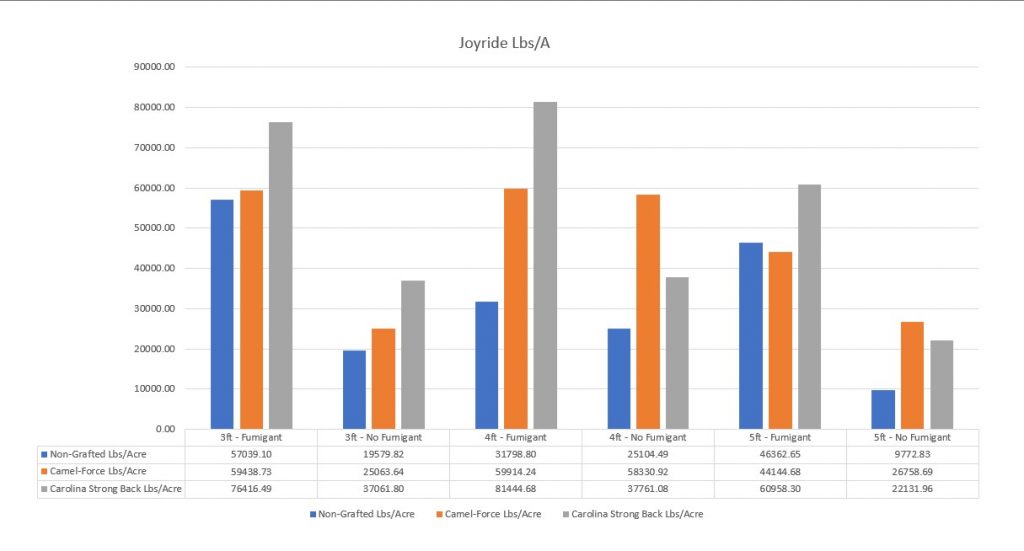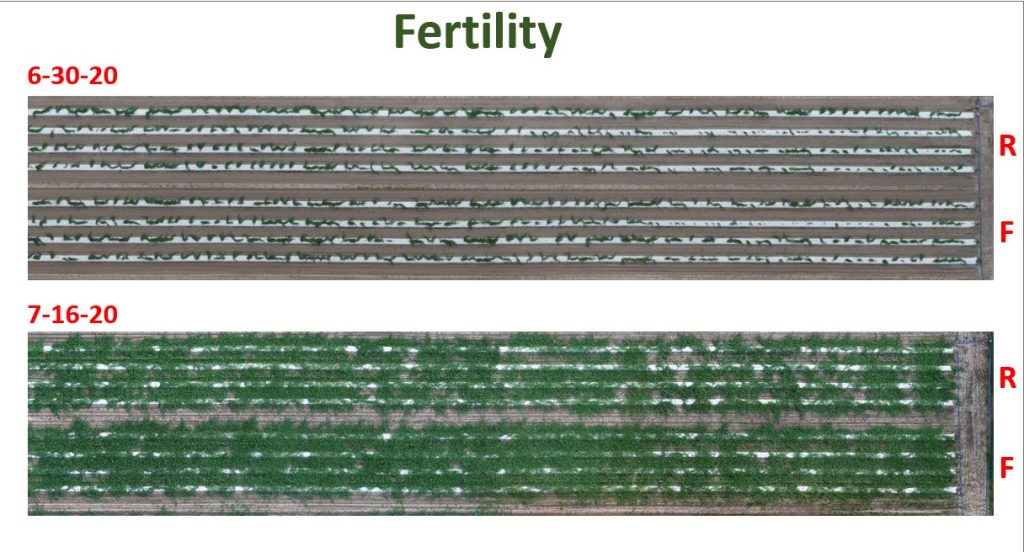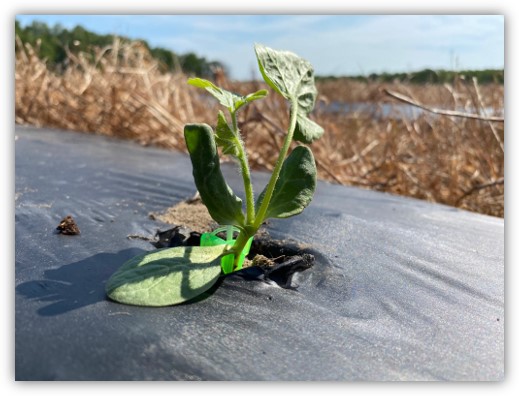In our last blog we went over the obstacles that growers face in watermelon production and their potential solutions. In this blog and video presentation we will take a deeper dive into why we recommend grafted plants and fumigation as potential solutions to obstacles in watermelon production.

Before we get into the first broad study trial we conducted, I would like to focus on grafted plants as a tool and potential solution to grower obstacles.
Some advantages in grafted plants and differences over standard are:
- Improved root system, increased vigor, better plant and vine health.
- Disease resistance. (Fusarium, all races)
- Nematode resistance. (Rootstock dependent)
- Reduced crop rotation due to better disease resistance.
- Prolonged harvest potential and higher yield potential.
A common question about grafted plants is about which rootstock is best for a farm. Rootstocks that Tri-Hishtil offers are the Interspecific Hybrid Squash and the Carolina Strongback. The Interspecific Hybrid Squash is susceptible to Root Knot Nematode while the Carolina Strongback offers resistance.
In a trial we conducted in Central North Carolina we looked at solving some of the problems that growers faced by focusing on grafted plants versus standard, fumigated versus non-fumigated, and standard fertility versus reduced fertility.
At the end of this first trial, we learned that grafted plants with the Carolina Strong Back rootstock had significant yield responses over the standard plants, while also performing better than the squash-based rootstock. We also saw increased yields from fumigation regardless of plant type (grafted or standard) and regardless of plant spacing. Lastly, we discovered that reduced plant populations within 20-30% did not result in yield loss when using grafted plants.

Lastly, we learned from this trial that early fertility reduction would control vine density and promote earlier flowering in grafted plants; however, fertility decreases after fruit set resulted in yield loss. This information has led to specific fertility programs for grafted plants that increase yields, decrease costs and result in earlier harvests.

To learn more please contact our very knowledgeable team at TriEst and be sure to sign up for the next installation of this blog. We’ll be going over more trial data and results from the field!
